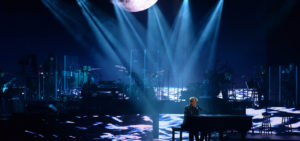Daylight Savings makes room for Las Vegas
It’s widely known that Las Vegas casinos shun clocks.
When you’re gambling, you quickly lose track of time and play longer. No need to have nasty Father Time reminding you it’s past your bedtime.
Up until recently – and still the case at the majority of casinos – you can’t easily see outside. Pit bosses would rather you not see that it’s daylight outside.
It’s all to preserve the timeless, dreamlike state many experience while in our fine neon city.
Recently a bill passed in Nevada allowing electronic transactions at kiosks (credit cards in slot machines, for example), but also slipped in at the end was the elimination of Daylight Savings Time.
It’s thought that Ben Franklin was the first to come up with the concept of shifting daylight by an hour. More could be accomplished during daylight, it was thought, and less energy would be used.
But in Las Vegas, where saving energy is only considered for one hour (Earth Hour, where most of the Strip goes dark in observance) and where more is actually accomplished during nighttime, it makes sense to keep the town darker than other cities.
It isn’t mandatory for every state to follow Daylight Savings. Hawaii and Arizona, for example, don’t participate.
And beginning Nov. 4, neither will Las Vegas. On that day, Daylight resumes to normal (“fall back an hour”) for most of the country, but in Las Vegas, we will move our clocks back two hours instead of one, to maintain greater nighttime exposure.
Then in the spring (“spring forward”) we’ll again move our clocks back by two hours. An easy way to look at it: whenever Daylight Savings rolls around at 2 a.m., just set your clocks to midnight.
This will also create a special New Year’s Eve that will take place specifically and uniquely for Vegas. It may be 2 a.m. in another part of the country, or it may be noon. Either way, New Year’s will be owned by Vegas.
We have Eastern, Central, and Pacific Time. Welcome to Vegas Time.









 Beranda
Beranda
 Whatsapp
Whatsapp
 Daftar
Daftar
 Promosi
Promosi
 Telegram
Telegram